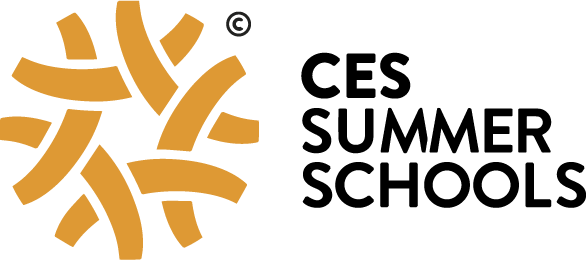| [THIS CES SUMMER SCHOOL WAS CANCELLED] |
7th EDITION of the INTERNATIONAL SUMMER SCHOOL "EPISTEMOLOGIES OF THE SOUTH"
.jpg)
At a time when the globe is confronted with perpetual challenges of various forms of injustices and anti-democratic backlashes which have been made more visible by the dominant crises of our times, Artworks inspire us to pause and reflect on the past while imagining a possible just future. With this new edition of the School we seek, through the collective reflections with artists, art collectives, curators, academics and activists from various parts of the world and bearers of different knowledges, to develop theoretical and methodological approaches about resistance and struggles that shape our world. These approaches, stimulated by the Epistemologies of the South, enable critical diagnoses of the present, having as a constitutive element the possibility of reconstructing, formulating and legitimating alternatives for fairer and freer societies, aiming at fostering solidarity. The Epistemologies of the South seek to broaden the possibilities of rethinking the world from the knowledges and practises of the Global South. As an epistemological and political proposal, they challenge attempts at epistemic silencing, epistemicide or epistemic subalternisation. The South, in this context, is not geographic; it is heterogeneous and includes diverse spaces, varied experiences and an infinity of knowledges.
As in previous editions, we expect a heterogeneous group in terms of origin, age, work experience and struggle. This summer school will be a space for exchange and co-learning to imagine drawing utopias from concrete experiences and knowledges.
Where, When and How?
- The course will take place from July 3rd to July 10thby e-learning, using the Zoom platform.
- Schedule: The scheduled is set according to Lisbon time zone DST: GMT+1
- The total number of hours of the course is 25
- Certificate: of the 25 hours
- 40 students, with 5 scholarships. As in previous editions, the fellowship corresponds to the full payment of the summer course.
Organisation of this course
The course starts on July 3rd with the presentation of all the participants. It will be followed by an inaugural lecture and Q&A. Over the following 4 days six sessions will take place, featuring academics and artists. Each presentation will last 20 to 30 minutes, introducing themes and questions that will stimulate the discussions to be developed in the following workshops among the participants. Each day ends with a moment of debate between the students and the speakers, followed by group work of the participants. The course ends with a collective session (July 10th) designed to foster collaborative reflection and the transfer of knowledge among all the participants.
-
An interdisciplinary programme
Relying on the strong international dimension of the Epistemologies of the South, this Summer School will be still organised on-line, aiming to reach a broader public. It will focus on "Existing, Resisting and Struggling through the Arts" and will take place on July 3rd, 4th, 5th, 6th, 7th and 10th, 2023.The major themes, such as the Global South, ecology of knowledges, colonialism, decolonization, the arts, mediations and supports (institutions, actors, material supports) or translation (transmission, adaptation, appropriation) will be addressed through the presentation of specific and situated cases. Each of these cases responds to the specific historical and political realities that shape these different contexts. What ties them all together is the way in which they each call on the power of art to translate the struggles across different contexts, pushing us to confront the enduring realities of cognitive injustices and the struggles for solidarity.
-
Who is the course aimed at?
Students, academics, social movement activists, artivists, artists, curators and general public.
-
Working languages
English will be the working language, respecting the various existing versions, contributing to the intercultural transfer of knowledge and situated know-how.
Course objectives
The course is designed as an environment for the work and co-participatory construction of knowledges born from experiences, based on a pro-active and innovative pedagogical methodology. The course will function based on dynamic co-work in reflexive teams during the workshops, where students and lecturers share knowledge and dilemmas about the problems that mark the contemporary world. The horizon of decolonisation of knowledge is a central objective. in this sense, the main objective of this advanced training course is to promote South-South interdisciplinary dialogues to broaden reflection, show and make visible, record, interpret and extend the knowledge that sustains social struggles in our times.
The course is based on four fundamental axes based on the epistemologies of the South:
- That the understanding of the world far exceeds the European understanding of the world;
- That there cannot be global social justice without global cognitive justice;
- There is no lack of alternatives in the world, what is lacking is an alternative thinking of alternatives;
- The epistemologies of the South claim a diversity of knowledges that sustain social struggles that must be (re)known and valued. Consequently, as an alternative to any general theory, the Epistemologies of the South focus on the promotion of an ecology of knowledges together with intercultural translation.

